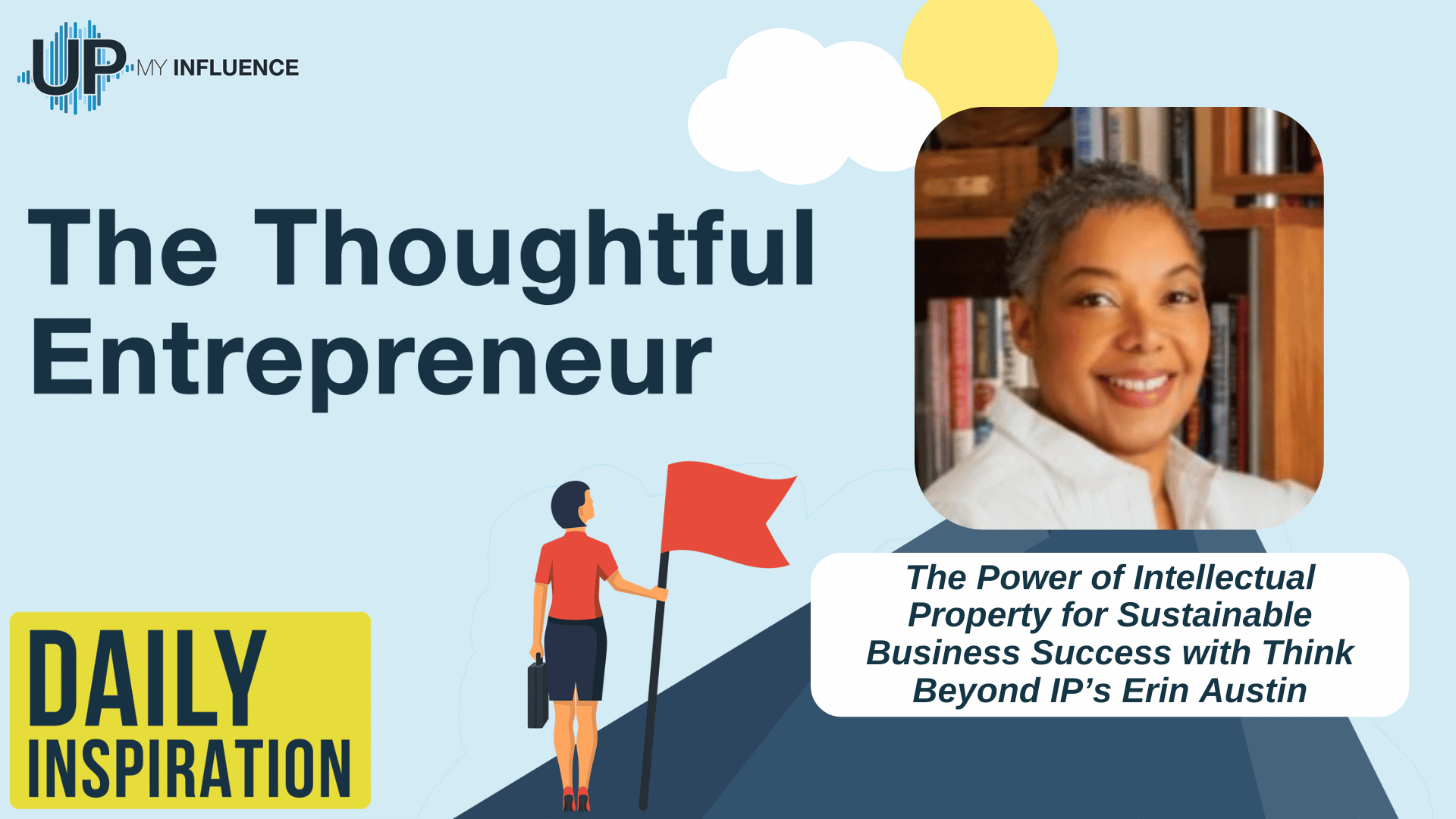THE THOUGHTFUL ENTREPRENEUR PODCAST
 Unlocking the Power of Intellectual Property for Consultants and Coaches
Unlocking the Power of Intellectual Property for Consultants and Coaches
In the latest episode of “The Thoughtful Entrepreneur,” host Josh delves into the critical role of intellectual property (IP) for consultants and coaches with Erin Austin, the founder of Think Beyond IP. This episode is a treasure trove of insights on how experts can transform their knowledge into scalable revenue streams by creating, protecting, and leveraging intellectual property assets. Josh kicks off the episode by inviting listeners to explore opportunities for introductions to partners, investors, influencers, and clients. Drawing from his extensive experience of speaking with over 2,000 leaders, Josh shares a free video resource that outlines steps to achieve 100% inbound business strategies without relying on spam, ads, or sales tactics.
Erin Austin, the guest of the episode, specializes in helping consultants and coaches leverage their expertise into scalable revenue streams through the creation, protection, and licensing of intellectual property. Erin shares her excitement about joining the conversation and provides an overview of her work. She explains that many experts start their careers by selling their time, but as they grow, they realize the limitations of this model. Erin emphasizes the need to decouple income from time by creating intellectual property assets. These assets, derived from their intellect and expertise, can be sold or licensed, allowing for greater profitability and scalability.
Josh expresses interest in hearing about Erin's journey and the impact she has had on her clients. Erin shares that her background in corporate environments, where intellectual property was a daily focus, led her to recognize the untapped potential of IP for independent experts. She recounts working with learning and development professionals who initially provided one-on-one services but sought to scale their businesses. Erin also discusses her podcast, “Hourly to Exit,” which focuses on transitioning from an unsustainable hourly business model to a scalable, profitable one. She invites listeners to visit her website, Think Beyond IP, where they can access a free resource outlining the “Audit, Protect, and Leverage” framework.
About Erin Austin:
Erin is a Corporate Attorney, Podcast Host, Founder of Think Beyond IP and Protect Your Expertise. She is a Harvard Law alum and seasoned contracts expert with over 30 years of legal experience.
She offers 1:1 legal services to expert business owners with corporate clients and creates easy-to-understand guides and digital products for business owners who need help understanding how to use and protect their intellectual property. Erin is especially skilled at simplifying complex legal issues and jargon into simple, easyto-understand terms and explanations business owners can actually understand and use.
About Think Beyond IP:
Legal Services tailored to protect and maximize the value of your ideas and helping B2B professional services firms identify, protect and leverage their valuable intellectual assets
Apply to be a Guest on The Thoughtful Entrepreneur: https://go.upmyinfluence.com/podcast-guest
Links Mentioned in this Episode:
Want to learn more? Check out Think Beyond IP website at
https://www.thinkbeyondip.com/
Check out Think Beyond IP on LinkedIn at
https://www.linkedin.com/company/think-beyond-ip?trk=affiliated-pages
Check out Erin Austin on LinkedIn at
https://www.linkedin.com/in/erinaustin/
Don’t forget to subscribe to The Thoughtful Entrepreneur and thank you for listening. Tune in next time!
More from UpMyInfluence:
We are actively booking guests for our The Thoughtful Entrepreneur. Schedule HERE.
Are you a 6-figure consultant? I’ve got high-level intros for you. Learn more here.
What is your #1 Lead Generation BLOCKER? Take my free quiz here.
Want to learn more about all the podcasts managed by UpMyInfluence? Opt in here.

